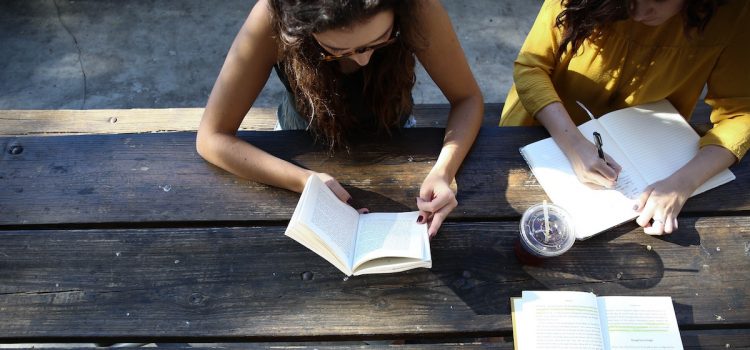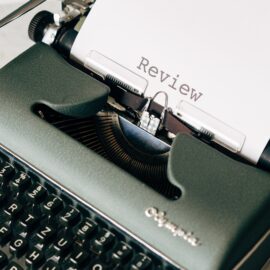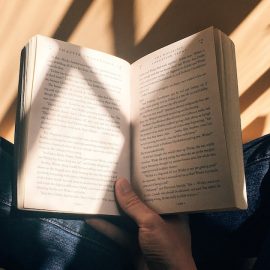

This article is an excerpt from the Shortform book guide to "How to Become a Straight-A Student" by Cal Newport. Shortform has the world's best summaries and analyses of books you should be reading.
Like this article? Sign up for a free trial here.
Do you procrastinate while studying? What is the key to learning how to study consistently?
In How to Become a Straight-A Student, Cal Newport says that studying every day when you have a big test coming up will help you get a good grade. But you should also take days off to reduce stress.
Check out below how easy it is to study consistently.
How to Study When You Say You Will
Scheduling your study sessions won’t help you get good grades if you procrastinate when you’re supposed to be studying. So how do you stop putting your work off? Newport shares several strategies to help you learn how to study consistently.
First, he recommends that you take care of your body so that you have enough energy to focus on the task at hand. Notably, stay hydrated: Drink lots of water to help you stay awake, limiting caffeinated beverages to one per hour so you don’t get jittery. You should also eat regularly. Low blood sugar diminishes your focus, so eat proper meals and healthy snacks that will keep you energized. Skip foods that will give you a sugar crash, like a chocolate chip cookie.
(Shortform note: Other experts present more specific recommendations to help you take care of your body, stay hydrated, and eat properly. To take even better care of your body, exercise for 20 minutes before studying; this improves your concentration. To ensure that you’re hydrated, check the color of your urine: It should be pale yellow or clear. Pay attention not just to how often you’re drinking caffeine, but what you’re drinking it in: Research indicates that you can safely consume 300 mg of caffeine daily, which is about 12 ounces of coffee but six cups of tea. And check out this list of study snacks for foods that are sweet but won’t sink your energy—like a fruit salad.)
Second, Newport recommends that you schedule recurring study sessions. For each weekday, find an hour that’s consistently free, and do the same type of work each time. For example, you might write your weekly Spanish essays every Tuesday at 11 a.m. These can’t be your only study sessions. However, by repeatedly scheduling the same activity in the same way, you’ll turn doing this work into a habit and will be less likely to procrastinate on it.
Third, Newport recommends planning ahead for difficult weeks. You’ll inevitably encounter some periods that are particularly academically demanding—like if you have two papers due the same week—and thus require you to spend a few days holed up in the library to study consistently. But spending several consecutive days focused solely on academics is exhausting. By scheduling these work-intensive days well before your deadline, you give yourself breathing room so you’re not forced to do two in a row and thus can conserve mental energy. For best results, broadcast to your friends how much work you’ll be doing on that day; doing so will create social pressure for you to work when the day comes.
Fourth, Newport recommends that you create a procrastination tracker to keep near your calendar. Each morning, write down your high-priority tasks. When evening comes, write down whether you’ve completed each task—and if you haven’t, write down why not. If you’ve put off a task for a weak reason, like that you wanted to watch Netflix instead, seeing that reason on paper will highlight its weakness in a way that merely thinking about it doesn’t—and will thus make you feel bad. In this way, the procrastination tracker motivates you to avoid this discomfort and do the work you’ve scheduled.
Why You Should Plan Days Off
Some experts warn about different consequences of spending too many days holed up in the library: poor health and grades. They contend that when you study consistently without taking a break, you get distracted and don’t learn as much. As a result, you start to perform poorly despite your hours in the library—which leads to greater stress and diminished mental health.
But instead of recommending occasionally work-intensive days in advance, they recommend scheduling days off from studying to give your brain and body the rest you need to recover. And, just as telling your friends you’ll work will create social pressure for you to do so, telling your friends you’re resting might force you to look after your health, too—especially if your day off involves making plans with them.)

———End of Preview———
Like what you just read? Read the rest of the world's best book summary and analysis of Cal Newport's "How to Become a Straight-A Student" at Shortform.
Here's what you'll find in our full How to Become a Straight-A Student summary:
- How to ace your college courses with just a few hours of studying each day
- How to combat procrastination and write better papers
- Study methods to prepare for different types of exams






